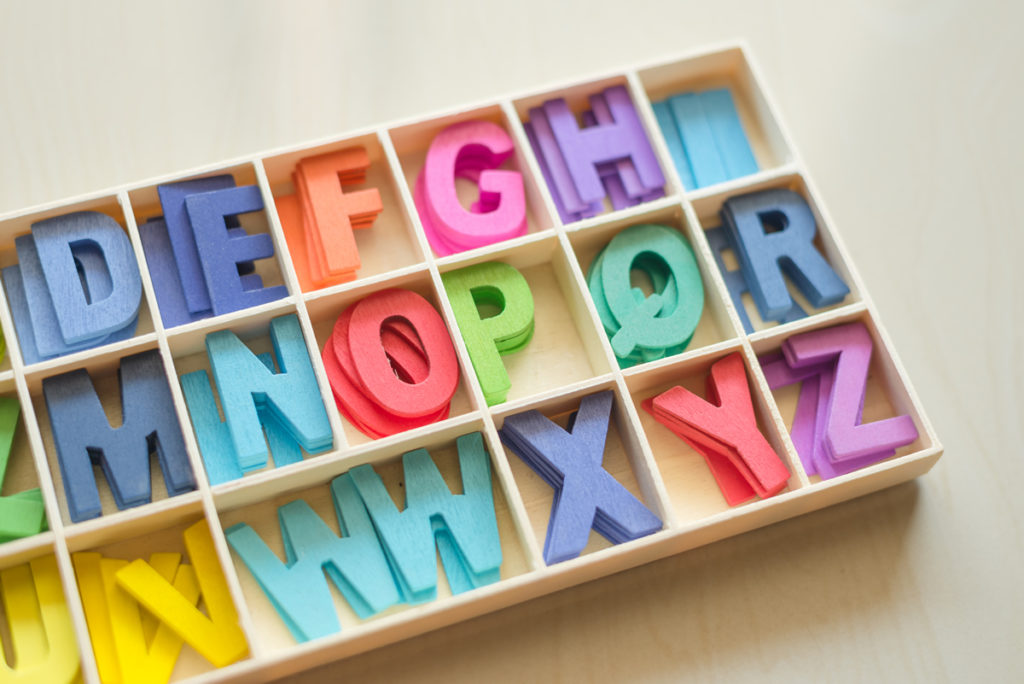Reading and language are some of the most basic skills that exist for good personal and professional development, but we do not always find the right activities to properly work on literacy . A tried and true method of developing these skills is through the use of phonetic activities. So in this article, we’ll help you understand what phonemes exactly are and share some great phonetic activities to do.

What are phonemes?
Explaining what a phoneme is actually is pretty simple: phonemes are just the relationships between letters and the sounds they make. Although letter combinations can be complex for young children, children can begin very early to learn to recognize sounds from some simple letters and words.
Learning phonics will help young children figure out words to learn how they are pronounced and what they mean , and this will give them an advantage over writing and spelling. And it is that phonetic activities can be adjusted to all ages and can be established through fun and entertaining dynamics. Do you want to know some of them?
12 fun phonics activities for kids
- Alphabet ball
This game is super simple and very active, and it is advisable to do it in a gym or outdoor area with plenty of space. This is an activity that will keep children moving , ideal for the more energetic, and will also keep them playing and learning. To begin, one of the adults in the game will pronounce or point to a word (cards can be created for this as letters), and then the child (if there is more than one, it can be done in turns) will respond with a word that start with the same letter. Then the adult must pass a ball to the child, giving him the turn, and it will be the little one who must draw a letter or name a word.
You can make the game even more fun by kicking the ball, chasing each other, or picking up the pace for excitement. You can also play the same game but with the idea that after the word a rhyme is sought, instead of another word with the same initial.

- Phonics cards
The idea of this game is to create cards with animals or any other theme that allows the little ones to recognize and build words. Using clothespins or any other type of non-permanent marker, the children can play to mark the cards that begin with the letter A, or with the letter P… or whatever comes to mind at any given time. Through these cards, children can work on the association of words and sounds while they are anywhere.
- Mysterious magnetic alphabet
Place a letter magnet opposite any magnetic surface: a magnetic board, the fridge … or mix them on a table or on the floor. Meanwhile, the child should stand near the magnetic board and pronounce the sound of a letter. Next you must run towards the magnets, select the corresponding letter and place it on the magnetic board. With this activity, which can also be done in a group, children can learn the sounds of letters in a fun way . Ask them to find and place all the letters and to pronounce and repeat the sound of each one.
- Photo album to remember
Have the little ones create a photo album, either physical or digital, with a photo and an element that represents each letter sound : “H” for anthill, “Z” for the zoo, “P” for the beach …etc. This is an easy way to practice with the alphabet and to maintain this learning also during the holidays, since there are many moments that children will want to remember and photograph. This activity allows us to go deep, almost with each letter we want, and also keep a nice memory of the summer period or other important holidays, such as Christmas.
- Eraser and magic sounds
Kids will love this simple and visually stimulating activity. Draw a picture on a board or cardboard and then name the letters you have individually or use the initials (depending on the level). Next, have the children identify and erase the elements that begin with those letters mentioned. You can draw a snowman with a hat on the letter “S”, buttons for “B”, the carrot for “Z” … If the child is old enough, you can also reverse the roles and see how he also develops with drawing and identification.

- Mystery bag
In this tactile activity you will place three objects in a bag, such as a comb, a little rubber fish or a ball for the letter “P”. Have the children name each item and guess the “mystery letter” that must match all the objects that are put into the bag each turn. Children will learn phonemes in a stimulating way and will also be able to challenge others with the ideas that occur to them, which will also give clues as to whether or not they understand how to create groups of words from the initials, or the first syllable , etc.
- 4 in a row
This game is recommended for children who already know how to count to at least 4. Print out simple coloring sheets that start with different letters. The cards will be removed progressively and turns will be taken to name and pronounce the letters correctly (the initials or the whole word). Whoever gets their turn right keeps the token, which can be colored or decorated with different objects. The first to get four tiles in a row wins!
- Alphabet BOOM!
This activity can be done with just the help of some chopsticks and a mug or jug. Each player must take a stick out of the cup and say the sound of the letter previously written on the stick. Then, if you can get it right, the player who got it right should keep that suit. To give excitement in one of the suits, you will have to write a wildcard word, which can be BOOM, and the player who takes it will have lost all his suits and must put them in the cup. It can be played with a timer to add more dynamism to the game.
- Two words already run
This game requires zero materials and allows children to stretch their legs and get some energy. When we say two words that start with the same sound, the children should stand up as fast as they can. In case the two words that we say do not start with the same sound, they should remain seated. If you play with several children, you can create an elimination system with the aim that at the end of the game there are certain winners, or play the English hide and seek thread.
- Funny monster names
This simple activity is fun for any time and does not require any special preparation or specific skills, making it ideal for all ages. Have the children replace the first letter of their name with the letter “M” and add the terms “crazy” and “monster” at the beginning. For example, if a boy’s name is Pablo, he would be renamed “El Loquito Monstruo Pablo”. The boy or girl who touches him must walk, growl or try to express himself like a little monster. The words may vary according to the adult’s choice. This game allows you to reinforce phonetic sounds and also develop gross motor skills in a fun and original way.

- Hit the mosquicarta
Kids will love using a fly swatter to hit the letters you pronounce and have written on sticky notes. You can choose the sounds of those letters that need to work the most. If you play with teams it can become a relay race or whatever comes to mind. Two or three children can play for points to see who can get to 10 first.
- Super spy bottle
Fill a large bottle with water and a variety of small items that start with multiple letters, and use rice or sand as a filler for the remaining space. To play, use a deck of letter cards or cards with phonics clips and choose a letter. Then have the child shake the bottle, find and mark the object with the corresponding initial letter.
With these original activities you will not only work and practice phonetics, but you will also help the little ones to develop their minds and imagination.
Phonics can be fun too!











































































































